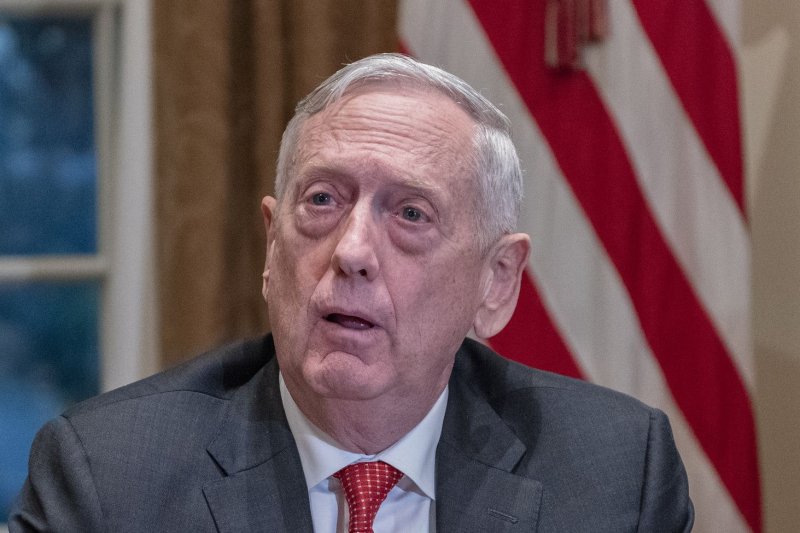United States Secretary of Defense James Mattis called for a cease fire so peace talks can begin. Photo by Ron Sachs/UPI |
License Photo
Oct. 31 (UPI) -- The Trump administration called on Houthi rebels and Saudi coalition forces to agree to a cease-fire so the United Nations can begin peace talks to end the Yemen Civil War.
After years of violent war and blockades, Yemen civilians are on the brink of widespread famine with an estimated 22 million people in need of food and medicine. The International Rescue Committee called the U.S.-ordered cease-fire the "most significant breakthrough" in the war.
"(W)e want to see everybody around a peace table, based on a cease-fire, based on a pullback from the border, and then based on a ceasing of dropping of bombs that will permit the special envoy ... to get them together in Sweden and end this war," U.S. Defense Secretary Jim Mattis said Tuesday. "We need to be doing this in the next 30 days. We have been mired in this problem long enough."
U.S. Secretary of State Mike Pompeo released a statement supporting peace talks that would address the underlying issues of the conflict. He called on Houthi rebels to stop launching missiles and drone strikes at Saudi Arabia and the United Arab Emirates. He also called on the coalition to stop launching airstrikes in populated areas of Yemen. The war has killed an estimated 10,000 people.
"It is time to end this conflict, replace conflict with compromise, and allow the Yemeni people to heal through peace and reconstruction," Pompeo said
The conflict started when Houthi rebels took over parts of Yemen, including the capital, with Iran's backing. Saudi Arabia formed a coalition to fight back against the rebels, fighting a proxy war with Iran.
Coalition airstrikes started in March 2015 and have continued with U.S. refueling and targeting support. Mattis said U.S. forces have refueled less than 20 percent of the coalition aircraft and that the U.S. and its allies have a high standard for limiting civilian casualties.
Critics say the attacks have targeted civilians.
There's speculation that Saudi Arabia's power has been weakened by the ongoing controversy surrounding the death of journalist Jamal Khashoggi at a Saudi consulate in Turkey.















